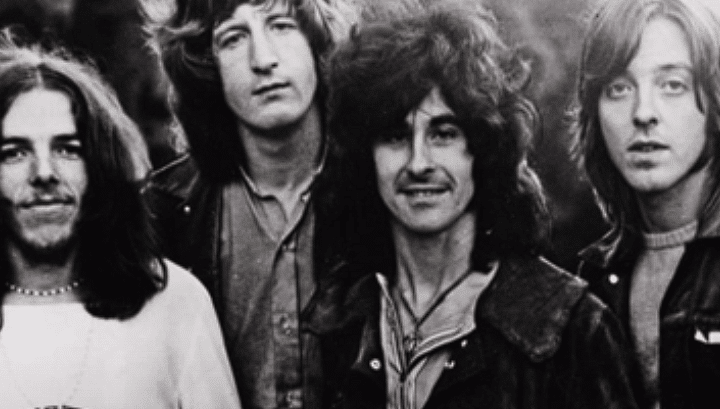The “Curse of the Ninth” haunted classical composers in the 19th century, as many believed they would die after completing their ninth symphonies. Beethoven, Schubert, Vaughan Williams, and Dvořák all died after their ninths. Gustav Mahler tried to avoid the curse by not calling his ninth symphony a symphony, but he still fell victim to it while composing his 10th symphony. Composer Arnold Schoenberg reflected on the curse’s significance. However, some composers like Mozart escaped unharmed. Composer Philip Glass admitted the fear of the curse when debuting his own ninth symphony and cleverly composed his ninth and 10th symphonies together to evade it.
MY WAY – FRANK SINATRA
“My Way,” Frank Sinatra’s 1969 anthem of self-confidence, holds a dark reputation in the Philippines. The song has sparked a series of murders known as the “My Way Killings” in karaoke bars, which are popular in the country. The rage stems from the song’s frequent off-key renditions during karaoke sessions. One notable incident involved a security guard shooting a man who sang badly. Similar killings and violent fights have occurred. The song’s cocky lyrics and their perceived arrogance contribute to the animosity it provokes. Some attribute the aggression to the machismo culture in the Philippines. As a result, many karaoke bars have banned “My Way” to prevent further conflicts.
GLOOMY SUNDAY – REZSO SERESS
Rezső Seress composed a melancholic piano ballad in 1932, originally titled “Vége a Világnak” or “The World Has Ended.” With lyrics by László Jávor, the song depicted a man driven to suicide after his lover’s death, earning it the nickname “The Hungarian Suicide Song.” The English version, “Gloomy Sunday,” gained popularity after Billie Holiday’s 1941 cover. However, an alarming number of suicides were associated with the song, leading to bans by several networks. Tragedy struck its creators as well, with Holiday and Seress both facing untimely deaths. While the song’s influence is disturbing, some suggest that the rise in suicides during the 1930s was more influenced by the Great Depression. Proceed with caution when listening to it.
MUSIC MUST CHANGE – THE WHO
The British rock band The Who experienced a song curse with their track “Music Must Change.” Drummer Keith Moon struggled to find the right beat for the song due to his unconventional style and addiction problems. The band enlisted a session musician to record the drums instead. Tragically, Moon died a month after the song’s release from an accidental overdose. The band performed “Music Must Change” only a few times before retiring it. When they attempted to revive the song for a 2002 tour, bassist John Entwistle passed away just before the tour began, leading to the permanent retirement of the song. Singer Roger Daltrey expressed a strange feeling about it and recognized the need for the band to move on. The curse serves as a somber reminder of Moon’s struggles.
INSHA JI UTHO – AMANAT ALI KHAN
The Pakistani singer Amanat Ali Khan popularized the song “Insha Ji Utho,” based on a poem by Ibne Insha. The song, reflecting a disillusioned man leaving his city and lover, became a hit after its release in 1974. However, tragedy struck as Khan died suddenly from appendicitis just months after the song’s success. Four years later, on the song’s anniversary, poet Ibne Insha passed away from cancer. Insha himself had expressed a belief that the song was cursed, stating that it had taken lives. The curse seemed to continue as Khan’s son, the song’s producer, and another of Khan’s sons all died after being involved with the song.
DEVIL’S TRILL SONATA – GIUSEPPE TARTINI
Italian composer Giuseppe Tartini’s “Devil’s Trill Sonata” is believed to have been inspired by a vivid dream he had in 1713, where he learned to play the violin from the devil himself. Tartini was amazed by the devil’s virtuosity and attempted to recreate the sonata but found it challenging to capture the same level of intensity. The piece is known for its technical difficulty, featuring demanding bow work, intricate string crossings, double stops, and extensive trills. While the song doesn’t curse those who play it, its eerie creation story has left a lasting impact on popular culture, often associated with folklore about making deals with the devil.
DEAD MAN’S CURVE – JAN & DEAN
Jan & Dean, a popular California surf rock duo in the 1960s, released a song called “Dead Man’s Curve” in 1964, which told the story of a fatal car race on a dangerous stretch of road in Los Angeles. The lyrics turned eerily prophetic when two years later, Jan Berry, one half of the duo, crashed his own Stingray on Sunset Boulevard, not far from the song’s referenced location. Berry survived the accident but suffered severe brain damage, paralysis, and speech impairments, derailing his career. This incident led many to speculate if the song had cursed him.
PIANO SONATA NO. 6 – ALEXANDER SCRIABIN
Alexander Scriabin, a Russian composer renowned for his groundbreaking style, composed a piano sonata in 1911 that deeply unsettled him. Scriabin characterized the piece as “nightmarish” and “satanic,” causing him to refrain from performing it publicly and displaying visible fear when playing it for acquaintances. The haunting harmonies and disconcerting chords of the sonata contributed to its dark and foreboding atmosphere. Some even speculated that the composition possessed supernatural elements, with theories suggesting it foreshadowed the outbreak of World War I. Scriabin continued to create increasingly intense music until his premature death at the age of 43 due to septicemia, leaving a significant artistic legacy behind.

